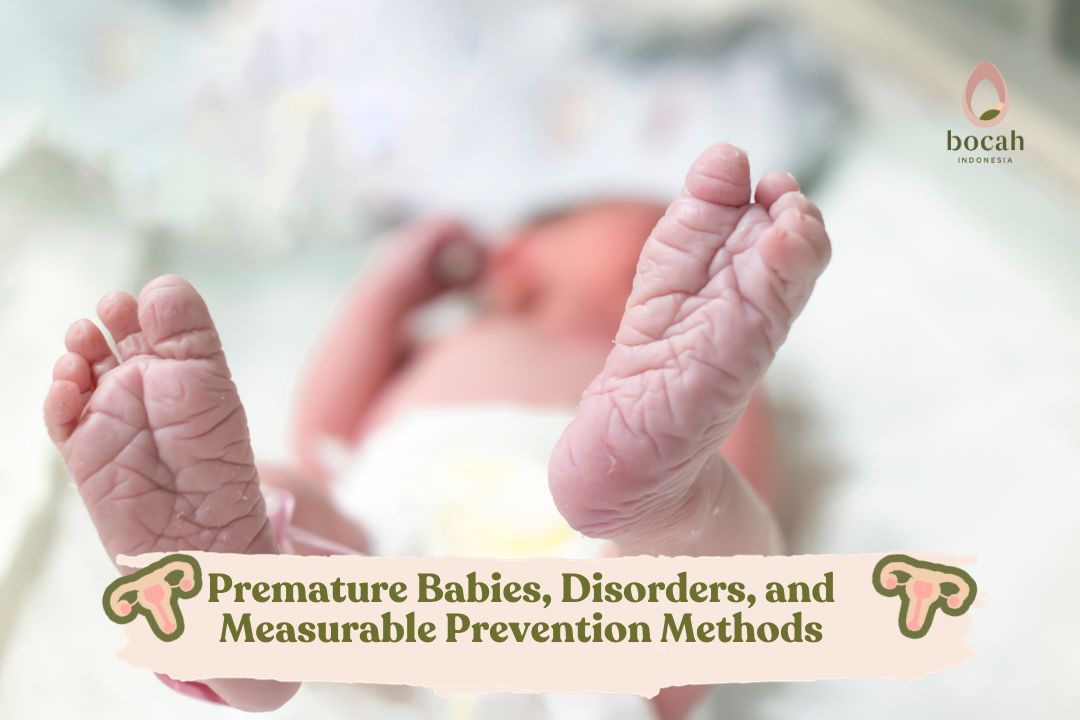Premature Babies: Born Before Their Time

According to records from the World Health Organization (WHO), it’s estimated that in 2020, 13.4 million babies were born prematurely. Discover the causes and risks of premature births below.
When a baby is born before reaching the gestational age of 37 weeks, it is considered a premature birth. The earlier the birth, the more severe the health risks faced by the baby.
There are several risk factors that can lead to premature delivery. Find out what they are and how to prevent them here.
Understanding the Term Premature Birth
A premature baby is a baby born too early, about three weeks before the estimated due date.
The standard pregnancy period (fetal development) is around 40 weeks. Premature births occur before the gestational age of 37 weeks or earlier. Such early or premature births can pose serious health risks for both mother and baby.
Tanya Mincah tentang Promil?
Unlike full-term babies, prematurely born babies require intensive care as their body organs aren’t fully developed.
Premature births can be grouped into two main categories:
- Indicated – Situations where delivery is performed based on medical considerations for the safety of both mother and fetus.
- Spontaneous – Cases where birth happens suddenly and naturally for various reasons.
Up to 20% of premature births may be caused by medical indications, where the mother’s condition is life-threatening or the fetus shows danger signs.
Based on gestational age, premature babies can be classified as:
- Late preterm: Born between gestational ages of 34 to 36 weeks.
- Moderate preterm: Born between gestational ages of 32 to 34 weeks.
- Very preterm: Born before a gestational age of 32 weeks.
- Extremely preterm: Born at a gestational age of 25 weeks or even earlier.
Causes of Premature Birth
Premature births occur for various reasons. Most premature births happen spontaneously, but some are due to medical reasons, such as infections or other pregnancy complications requiring early induction or cesarean section.
Further research is needed to understand the causes and mechanisms of premature births. Some causes include:
- Previous Premature Births – Women who’ve previously experienced premature births or early contractions are considered at a higher risk.
- Multiple Pregnancies – Pregnancies with twins, triplets, or more can be a risk factor for premature birth. One study showed that over 50% of twin births were premature compared to just 10% of single births.
- Assisted Reproductive Technology – Procedures used to help couples with fertility issues. Examples include in vitro fertilization (IVF), intrauterine insemination (IUI), and other techniques. Some research indicates that certain factors related to ART, such as the number of embryos implanted or hormonal changes during IVF procedures, can increase premature birth risk.
- Maternal Uterine Conditions – Women with certain reproductive organ anomalies are at a higher risk.
- Medical Conditions of the Expecting Mother – Certain conditions, including some specific to pregnancy, can elevate premature birth risk. These include urinary tract infections, sexually transmitted infections, high blood pressure, vaginal bleeding, underweight or obesity before pregnancy, placenta previa, uterine rupture risks, diabetes, and gestational diabetes.
- Ethnicity – Premature births occur more frequently in certain racial and ethnic groups.
- Mother’s Age – Women younger than 18 or older than 35 are at risk.
- Lifestyle and Other Factors – Factors like inadequate prenatal care, smoking, alcohol, illegal drugs, domestic violence, lack of social support, stress, long working hours, exposure to certain environmental pollutants, and short intervals between pregnancies.
How to Prevent Premature Birth?
While there’s no definitive way to prevent premature birth, certain measures can reduce the risk:
- Routine Health Checks – Regular prenatal visits are crucial.
- Avoid Smoking, Alcohol, and Drugs – These substances can elevate premature birth risk.
- Healthy Diet – A balanced diet during pregnancy is essential.
- Manage Stress Well – High stress levels can contribute to premature labor.
- Avoid Heavy Work – Discuss with your doctor about safe jobs during pregnancy.
- Maintain Dental Health – Sometimes, gum infections or other dental health issues can be linked to premature labor.
- Manage Chronic Diseases – Conditions like diabetes or hypertension should be kept under control.
- Space Out Pregnancies – Wait at least 18 months between pregnancies.
Premature birth can pose serious health challenges for a baby. If a baby doesn’t have enough time to develop in the womb, essential organs might not fully develop. However, advancements in neonatal care are helping many premature babies grow into healthy and strong children. Maintaining good health during pregnancy is the best way to prevent premature birth.
If you’re looking for fertility treatments or pregnancy programs, find the information on Bocah Indonesia.
Source:
- American College of Obstetricians and Gynecologists. Preterm Labor and Birth. Diakses 2023 https://www.acog.org/womens-health/faqs/preterm-labor-and-birth
- BMJ Open. Carson C, Henderson J, Redshaw M. Impact of Preterm Birth on Maternal Well-Being and Women’s Perceptions of Their Baby: A Population-Based Survey. Diakses 2023. https://www.ncbi.nlm.nih.gov/pmc/articles/PMC5073632/
- Centers for Disease Control and Prevention. Preterm Birth. Diakses 2023. https://www.cdc.gov/reproductivehealth/maternalinfanthealth/pretermbirth.htm
- March of Dimes. Preterm Labor and Premature Birth. Diakses 2023. https://www.marchofdimes.org/complications/preterm-labor-and-premature–baby.aspx
- World Health Organization. Preterm Birth. Diakses 2023. https://www.who.int/news-room/fact-sheets/detail/preterm-birth










